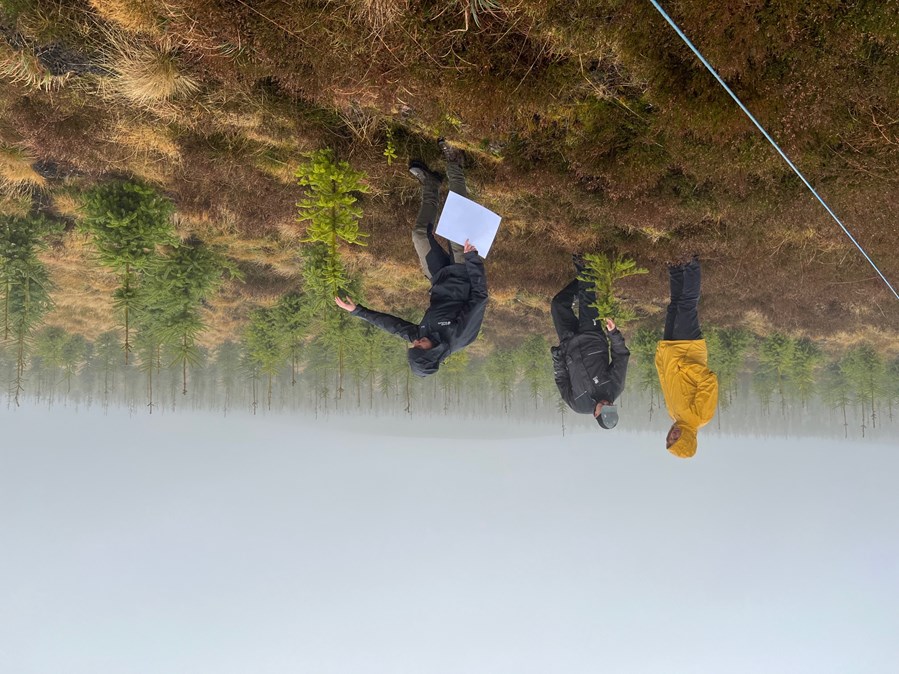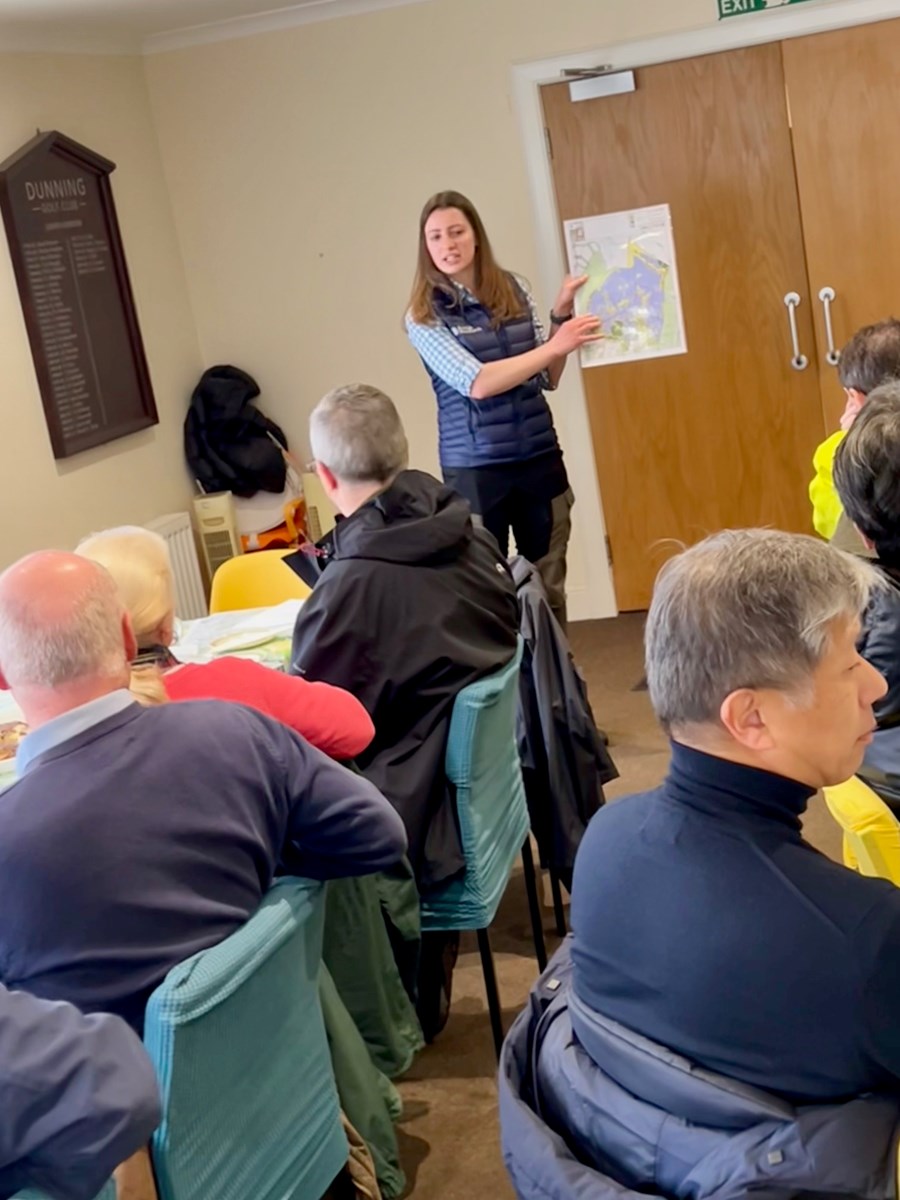International forestry leaders visit SWL site
A group of senior executives from some of the world’s largest forestry businesses visited a large Scottish Woodlands site to gain insights into Scotland's approach to delivering wide-ranging benefits through planting trees.
The visit to Knowes & Keltie, near Dunning, Perthshire, was attended by global forest sector leaders from Japan, Australia, New Zealand, the United States, Finland and Sweden.

They represent members of the International Sustainable Forestry Coalition (ISFC), open to "all global forestry owners, managers and investors who subscribe to the highest environmental, social and governance standards". The aim of the Coalition is to promote sustainable forest management and help world leaders understand the role sustainable forestry (and products from such forests) must play in supporting positive outcomes for climate change, nature and more.
The delegation, which also visited Jerah Forest in the Ochils, were shown around Knowes & Keltie by Scottish Woodlands' Forest Manager Jillian Kennedy.
Scottish Government Minister Mairi McAllan previously visited the 450-hectare site (in 2022) and said Scotland recognised that "forests planted to produce wood can deliver a very significant range of benefits for our rural economies and for the future of our environment".
Almost 1 million trees were planted at Knowes & Keltie, which is expected to provide a 3,150-tonne annual benefit in terms of carbon dioxide capture and storage. The scheme also promotes public access by linking forest roads and tracks to an existing network of core paths - particularly suitable for mountain bikers and walkers.
Ian Robinson, Managing Director of Scottish Woodlands, who also attended the visit, said: "It was a pleasure to host the international delegation at Knowes & Keltie; it's a terrific site and Jillian and the team did a great job of explaining the multiple objectives that the trees will deliver."
Ross Hampton, Executive Director of the ISFC, said: "Scotland is a fascinating example of tree planting within a framework of high levels of regulation, wide stakeholder consultation and competing land uses. At Knowes & Keltie and Jerah, we saw modern and multi-species forests planted for a wide range of reasons - environmental, economic and social, and learnt how local communities are engaged in the forest planning process."
Stuart Goodall, Chief Executive of Confor, said: "This was an important visit to showcase multi-purpose forestry in Scotland. There is a growing global awareness of the valuable contribution that tree planting and the greater use of wood can make to tackling climate change and the ISFC has been established to support that and to promote the sustainable management of forests.”

Mr Goodall said the visit showed that forestry and wood had a huge role to play in both mitigating climate change - and helping the landscape adapt to what is already happening.
He explained: "Trees soak up carbon dioxide as they grow and then can be harvested and made into wood products, which retains that carbon dioxide. In addition, schemes are being designed to help alleviate the increasing risk of floods, which helps the landscape adapt to the impacts of climate change that we are already seeing, with more extreme weather events."
The ISFC played a role in an announcement at COP28 in Dubai last December supporting the need to substantially increase the use of timber in construction, and the need to connect this ambition to increasing the supply of sustainably-sourced timber. A coalition of 17 countries - including the UK - committed to “advancing policies and approaches that support low carbon construction and increase the use of wood from sustainably managed forests in the built environment” by 2030.